Career
Copyright@ Australian Catholic University 1998-2026 | ABN 15 050 192 660 CRICOS registered provider: 00004G | PRV12008
Copyright@ Australian Catholic University 1998-2026 | ABN 15 050 192 660 CRICOS registered provider: 00004G | PRV12008
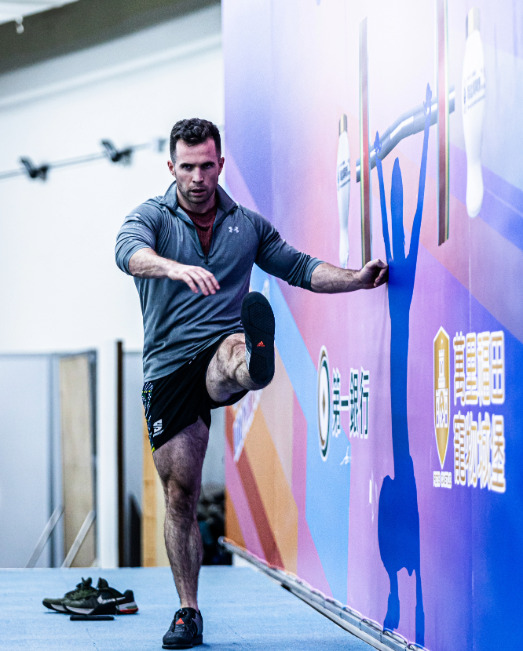
When Jonathon Weakley was growing up in Christchurch, New Zealand, rugby union was an obsession. Every aspect of life was infused with the sport, and like many of his peers, he played and supported it with passion.
But the young Jono had another obsession: training. Armed with a pad and a pen and bucketsful of energy, he began experimenting with his own workout programs even before he started high school.
“From a really young age, I was hugely fascinated with sport science,” says Dr Weakley, now an Associate Professor with ACU’s Sports Performance, Recovery, Injury and New Technologies (SPRINT) Research Centre. “It was just something that was always in me, something I’ve always loved.”
What followed was a methodical pursuit of expertise. After earning a bachelor’s degree in New Zealand and two master’s degrees in Australia, he headed to the UK to complete a PhD investigating resistance training practices in rugby union players. He also worked as a coach with English rugby, and held an academic position at Leeds Beckett University, eventually moving to Brisbane to join ACU in 2019.
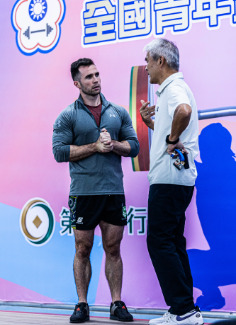
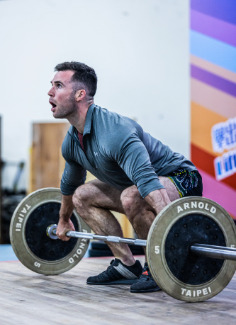
Six years later, after notching up more than 100 peer-reviewed manuscripts and having built a reputation as a leader in the field, Dr Weakley was offered the opportunity of a lifetime when he joined Rugby Australia as Head of Research and Innovation.
The appointment represents the culmination of a journey that began on the schoolyards and rugby fields of Christchurch.
“I really believe that you’re a product of your environment, and you’re inherently drawn to the things you grew up doing,” says Dr Weakley, who still holds a research fellowship at Leeds Beckett.
“Us Kiwis have a strong pull towards rugby – it’s such a massive part of our way of life. Being involved in rugby helps me to feel aligned with my culture, and that’s really important to me.”
When you combine his love of rugby with the vast amounts of scientific knowledge he has gathered over the past decade, Dr Weakley seems the ideal choice to shape RA’s research direction.
His main task is to guide research that supports the health and performance of athletes and coaches across the organisation, from the Wallabies down to the grassroots level.
He points out, however, that possessing knowledge and expertise is only half the battle. The other challenge lies in translating complex information into actionable insights for time-pressed coaches – a tricky task for even the best communicators.
“To be totally honest, at the first meeting I had with Rugby Australia, I almost got tossed out because I alienated the audience so badly,” he recalls. “My message was too long and overly complicated, and that’s the wrong approach with coaches and rugby players. They’re too busy being the best coach and the best player they can be.”
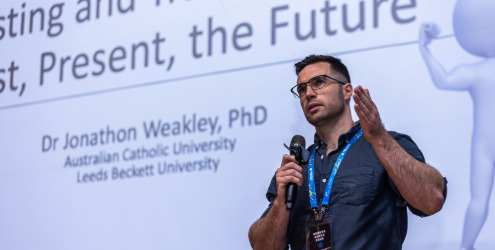
Once he reconnected with his rugby roots, he was able to capture the attention of his audience.
“I can communicate with rugby coaches and players in their own language, because I speak that language, too,” he says. “I understand the sport well and I understand the science well, and if you can put those things together in a way that is interesting, practical and feasible, you’ll soon see those performance improvements and get the results you’re after.”
Of all the influences that sports science has had on rugby union in the past decade, perhaps the most profound is the size of the players.
The average rugby prop has always been a giant of sorts – skilled in the art of the scrum, with enough bulk to play the role of enforcer. These days, they’re a more athletic version of that archetype: heavier, more muscular, and lightning quick.
“Twenty years ago, our props were around 110 kilograms – now we have props who are pushing 135kgs, and it’s frankly terrifying how strong and fast these guys are,” Dr Weakley says.
The extra strength and speed these athletes have leads not only to performance benefits; it also improves recovery and mitigates injury.
“These athletes are of similar stature to the prop of 20 years ago but they’re 20 kilograms heavier, and that’s not by chance. We’re physically developing them for safety, enabling them to better withstand contact and avoid injury, while also enhancing performance and recovery.”
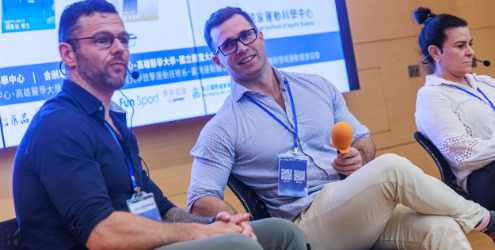
In recent times, sports science’s evolution has been aided by the rapid uptake of technologies, enabling the analysis of previously unquantifiable aspects of player performance in fine detail. Whether it’s GPS units and heartrate monitors that track athletes during training, or smart mouthguards with built-in accelerometers and head injury assessment, the streams of data being produced are immense.
But while these statistics can give sports scientists and coaches a clear window into the performance of the athletes they’re managing, Dr Weakley warns that data overload can be counterproductive.
“In some ways, what we’ll be aiming to do with Rugby Australia is strip that back and avoid paralysis through analysis,” he says. “When it comes down to it, what we’re trying to do in a fundamental way is to produce bigger, faster, stronger players who are available for longer, and an overload of data can make it easy to go on side quests that don’t really address that fundamental goal.”
There’s another thing to note about Jono Weakley’s new role at Rugby Australia: he’s volunteering his time and expertise to support the initiative.
This allows funding to be provided into a graduate industry partnership at ACU. It means that Dr Weakley will lead and mentor three PhD candidates who will delve deep into the science of rugby performance, and help to improve practices across the organisation.
He says the partnership will be beneficial for both Rugby Australia and ACU, which boasts “pound for pound the best sports science department in the world”.
“It’s a win-win,” he says, “because at ACU, our students get that direct link between academic research and its practical application in a high-performance environment – and in return, Rugby Australia gets access to our university’s expertise, which includes some real powerhouses in the world of sports science.”
Volunteering his time to take on the RA role, while also juggling his responsibilities at ACU, is Dr Weakley’s way of giving thanks. It reflects both his personal gratitude for those who supported his own journey, and his sense of professional responsibility to nurture the next generation of scientists coming through.
“If it wasn’t for all the opportunities I was given and all the help I received from my mentors and supervisors along the way, I wouldn’t be where I am right now,” he says. “There are a lot of talented people in sports science who just need a leg up, and it only feels right to be doing for others what was done for me.”
Keen to pursue a career in elite sport and gain access to some of the world’s leading researchers and practitioners? Explore the options.
Find out more about the SPRINT Research Centre’s projects and programs.
Copyright@ Australian Catholic University 1998-2026 | ABN 15 050 192 660 CRICOS registered provider: 00004G | PRV12008